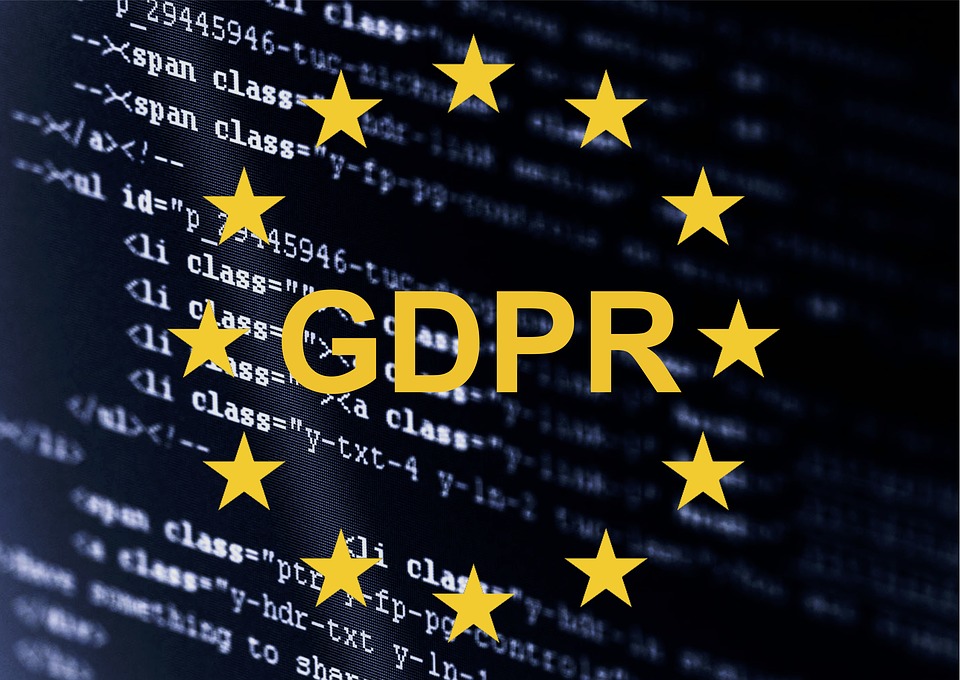
by Scott Faulds
Almost two years ago, the General Data Protection Regulation (GDPR) came into force across the European Union (EU) and European Economic Area (EEA), creating what many consider to be the most extensive data protection regulation in the world. The introduction of GDPR facilitated the harmonisation of data privacy laws across Europe and provided citizens with greater control over how their data is used. The regulation sets out the rights of data subjects, the duties of data controllers/processors, the transfer of personal data to third countries, supervisory authorities, cooperation among member states, and remedies, liability or penalties for breach of rights. However, whilst the regulation itself is extensive, questions have been raised regarding the extent to which GDPR has been successful at protecting citizens’ data and privacy.
Breach Notifications and Fines
Critics of GDPR have argued that whilst the regulation has been effective as a breach notification law, it has so far failed to impose impactful fines on companies which have failed to comply with the GDPR. National data protection authorities (such as the Information Commissioner’s Office (ICO) in the UK) under the GDPR have the ability to impose fines of up to €20m or up to 4% of an organisation’s total global turnover, whichever is higher. Since the introduction of the GDPR, data protection authorities across the EEA have experienced a “massive increase” in reports of data breaches. However, this has yet to translate into substantive financial penalties. For example, Google has been issued a €50m fine, the highest issued so far* by CNIL, the French data protection authority. CNIL found that Google failed to provide sufficient and transparent information that allowed customers to give informed consent to the processing of personal data when creating a Google account during the set-up process of an Android powered device. This is a serious breach of multiple GDPR articles and CNIL argued that the infringements contravene the principles of transparency and informed consent which are at the heart of the GDPR.
* The confirmation of record fines issued by ICO to British Airways (£183m) and Marriott International (£99m) has been delayed until 31st March 2020.
However, the fine imposed on Google amounts to approximately 0.04% of their total global turnover, which some have argued is simply too small an amount to act as any real deterrent. Therefore, it could be said that while GDPR has been effective in encouraging companies to be transparent when data misuse occurs, national data protection authorities have yet to make use of their ability to impose large financial penalties to act as a deterrent.
In recent months, the German and Dutch data protection authorities have both created frameworks which set out how they intend to calculate GDPR fines. Analysis of their fining structures indicates that both models will operate based on the severity of GDPR violation. However, both structures allow for the data protection authority to impose the maximum fine if the amount is not deemed fitting. The International Association of Privacy Professionals believes this will result in significantly higher and more frequent fines than those issued previously, and has suggested that it is possible that the European Data Protection Board may consider implementing a harmonized fine model across Europe.
Brussels Effect
The effects of the GDPR can be felt beyond Europe, with companies such as Apple and Microsoft committing to extend GDPR protections to their entire customer base, no matter their location. Even the COO of Facebook, Sheryl Sandberg, admitted that the introduction of GDPR was necessary due to the scale of data collected by technology companies. The ability of the EU to influence the global regulatory environment has been described by some experts as the “Brussels Effect”. They argue that a combination of the size, importance and regulatory power of the EU market is forcing companies around the world to match EU regulations. Additionally, this effect can be seen to be influencing data protection legislation across the world, with governments in Canada, Japan, New Zealand, Brazil, South Africa and California all introducing updated privacy laws based on the GDPR. As a result, it can be said that the introduction of the GDPR has enabled the EU to play a key role in global discussions regarding privacy and how citizens’ data is used worldwide.
Brexit
Following the UK’s exit from the EU, the GDPR will remain in force until the end of the transition period (31st December 2020), after this point it is the intention of the UK Government to introduce the UK GDPR. However, as the UK will no longer be a member state of the EU, it will require to seek what is known as an “adequacy agreement” with the EU.This allows businesses in the EEA and UK to freely exchange data. The UK government believes that this agreement will be signed during the transition period, as the UK GDPR is not materially different from the EU GDPR. However, it should be noted that the most recent adequacy agreement between the EU and Japan took two years to complete.
Final Thoughts
The introduction of the GDPR almost two years ago has had a variety of impacts on the current discussion surrounding privacy and how best to protect our personal data. Firstly, the GDPR has forced companies to become more transparent when data misuse occurs and gives national data protection authorities the power to scrutinise companies’ approaches to securing personal data. Secondly, the influence of the GDPR has helped to strengthen privacy laws across the world and has forced companies to provide individuals with more control over how their data is used. However, the effectiveness of GDPR is limited due to a lack of common approach regarding fines in relation to GDPR violations. In order to develop fully, it will be important for the European Data Protection Board to provide guidance on how to effectively fine those who breach the GDPR.
If you enjoyed this post, you may also like some of our other posts related to GDPR:
- General Data Protection Regulation (GDPR): 10 things business needs to know
- General Data Protection Regulation (GDPR): what the public sector needs to consider
Follow us on Twitter to see what topics are interesting our research team.
Share
Related Posts
Supporting residents on the decarbonisation journey: leveraging data for effective retrofit projects
As the drive towards decarbonisation intensifies, the social housing sector’s ability to collect, store and manage vast amounts of data becomes increasingly critical. With a shared goal of creating warmer, carbon-free homes, housing associations’ strategic use of data is essential ....
Tackling geographical inequalities is critical for ensuring that all parts of the country have the potential to prosper. When the UK was a member of the European Union, it was entitled to a share of funding from the EU’s structural ....
In recent years, there has been an increasing focus on ensuring people with ‘lived experience’ are involved in co-producing research and policy-making at practical, local level. However, there has been little discussion around what the people with lived experience themselves ....

